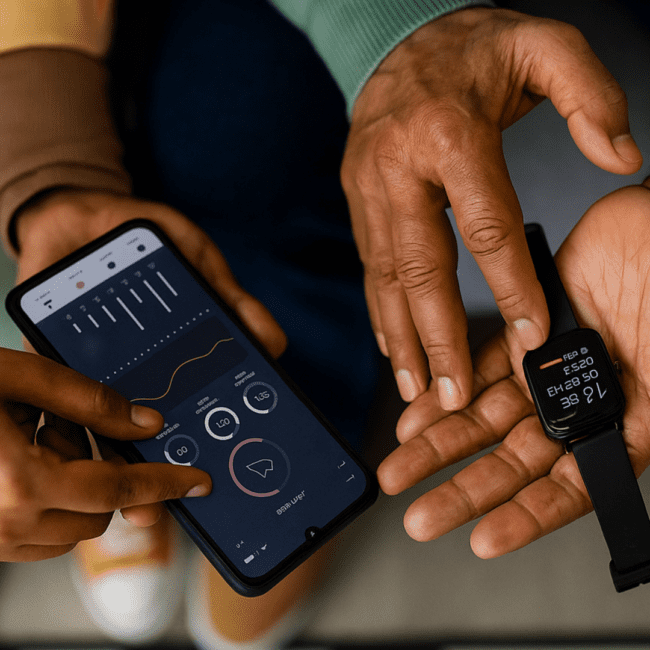As our parents age, routine medical appointments become increasingly important. But a quick 10 or 15-minute consultation with a doctor doesn’t always feel enough, especially when multiple health concerns are involved. As caregivers, we can be crucial in ensuring these visits are productive, comforting, and well-managed.
Here’s a practical checklist to help you prepare for your parents’ medical appointments. Showing up informed is one of the best ways to care.
Start with a Health Profile
The first step is to build a basic health profile for your parent. This becomes a one-stop reference for every doctor they see. Keep both a digital version (on your phone or laptop) and a printed copy.
Include:
- Medical history: Past surgeries, hospitalisations, long-standing conditions like diabetes or arthritis
- Current diagnoses: What they are currently being treated for
- Medications list: Include dosage, timings, and purpose, don’t forget supplements and ayurvedic/home remedies
- Allergies: Any known reactions to medication, food, or other triggers
- Vaccination records: Such as COVID-19, flu, pneumonia, or tetanus
- Family health history: Conditions like heart disease or dementia, if relevant
- Lifestyle notes: Mobility, sleep patterns, appetite, physical activity levels
Keeping this profile updated saves time during appointments and ensures that every doctor has the full picture.
Before the Appointment: Prepare Together
Involve your parent in the planning. A little preparation can help focus the conversation and avoid missing important points.
Set objectives:
What’s the primary reason for this visit? Are they experiencing new symptoms, needing a medication review, or following up on a test result?
Track symptoms:
Encourage your parent to describe any issues clearly. Note down when symptoms started, how often they occur, and what seems to trigger or relieve them.
Make a list of questions:
It’s easy to forget once you’re in the clinic. Write down 2–3 top concerns you want to address. Examples:
- Could this be a side effect of the medication?
- Are we due for any screenings or tests?
- Is there anything we can do to improve daily functioning?
Tip: Keep the list concise and prioritised, doctors often appreciate when the visit is well-structured.
What to Bring Along
Make sure you carry:
- The updated health profile
- A current medication list or photos of pill packs
- Past test results or scan reports (especially if visiting a new doctor)
- A notebook or phone to jot down key points
- Insurance or health card documents, if applicable
- Any mobility aids, glasses, or hearing aids
- Water, snacks, or a small cushion if long waits are expected
Being prepared avoids confusion and gives the doctor a more complete picture.
During the Appointment: Be Supportive, Not Dominating
As a caregiver, your presence matters. Introduce yourself to the doctor as someone who helps manage care. But remember, let your parent speak as much as possible, unless they are unwell or forgetful.
Listen carefully and note down key terms, dosages, or next steps. If something isn’t clear, ask politely for it to be explained in simpler terms. Encourage your parent to ask questions too, even if it means repeating something.
After the Appointment: Reflect and Follow Up
Once you’re home, take 10–15 minutes to go over what was said. Did the doctor:
- Suggest a change in medication?
- Recommend new tests or therapies?
- Mention any red flags to watch out for?
Update the health profile accordingly. If follow-up appointments or tests were suggested, book them right away, delays can affect diagnosis or treatment. Set calendar reminders so nothing gets missed.
Managing Multiple Doctors? Stay Organised
If your parent sees different specialists (e.g., cardiologist, orthopaedist, dermatologist), it’s your job to help coordinate. Keep a simple notebook or digital log with entries like:
“Dr. Mehta (Cardiologist) – increased BP meds on 10 May.”
Always inform one doctor about what the other has prescribed to avoid conflicts or side effects.
A Thought to End On
Medical appointments can be stressful for older adults. Many feel anxious, confused, or overwhelmed by medical jargon. Your calm, prepared presence makes a real difference.
By doing a bit of planning and keeping records in order, you’re not just ticking boxes, you’re creating a safety net of care, clarity, and comfort for your parent. And in doing so, you’re helping them age with dignity and peace of mind.






